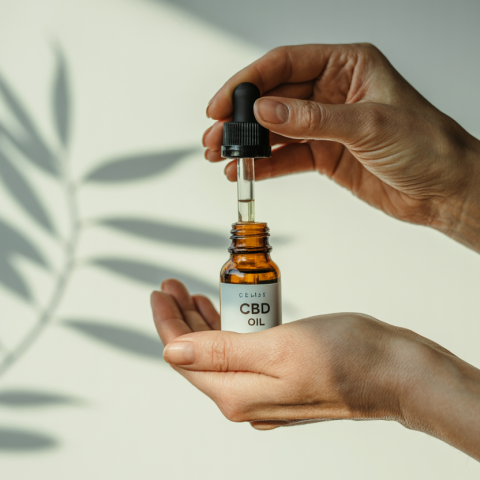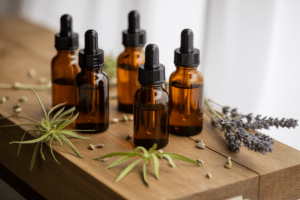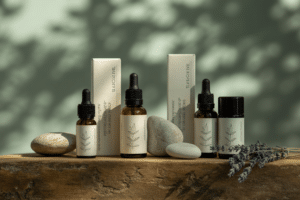- Drug Interactions
Cannabis for Seniors: A Compassionate Guide to Wellness in Later Years

Contents
Contents
After decades of taking prescription medications for arthritis pain, 68-year-old Maria from Athens discovered something unexpected: a few drops of CBD oil under her tongue provided more relief than her pharmaceutical regimen—without the side effects. She’s not alone. Across Greece and worldwide, many are quietly discovering that Cannabis for Seniors offers a compassionate path to managing the challenges of aging.
This isn’t about recreational use or chasing a “high.” It’s about quality of life. It’s about seniors finding relief from chronic pain, sleeping through the night for the first time in years, and regaining appetite after illness. As medical cannabis becomes more accessible in Greece and research continues to validate its therapeutic potential, older adults and their families are asking important questions—and deserve trustworthy, clear answers.
Why Seniors Are Discovering Cannabis Wellness
The numbers tell a compelling story. Adults over 65 represent the fastest-growing demographic of cannabis users, with usage among seniors increasing by over 75% in recent years according to research from the Journal of the American Medical Association. This shift isn’t driven by curiosity—it’s driven by need.
Key Reasons Seniors Choose Cannabis
- ✓ Fewer side effects compared to traditional pharmaceuticals
- ✓ Natural alternative to opioid pain medications
- ✓ Multi-symptom relief (pain, sleep, appetite, anxiety) from one treatment
- ✓ Growing medical evidence supporting therapeutic benefits
- ✓ Improved quality of life and daily function
Many seniors grew up during an era when cannabis was heavily stigmatized. Today, that stigma is fading as science reveals what ancient medicine knew: cannabis has genuine therapeutic value. The National Center for Complementary and Integrative Health acknowledges ongoing research into cannabis for various health conditions. For older adults managing multiple chronic conditions, cannabis—particularly CBD—offers an appealing option that doesn’t come with the risks of liver damage, stomach bleeding, or addiction that accompany many conventional medications.
💡 Breaking Through the Stigma
It’s completely normal to feel hesitant. Many seniors remember the “War on Drugs” and associate cannabis with illegal activity. Today’s medical cannabis landscape is entirely different—regulated, researched, and increasingly accepted by healthcare professionals. You’re not doing anything wrong by exploring natural wellness options.
Conditions Where Cannabis Shows Promise for Seniors
Research and clinical experience have identified several conditions common in older adults where cannabis—particularly CBD—demonstrates therapeutic potential. The Arthritis Foundation has noted growing interest in CBD for pain management among patients. While individual results vary, many seniors report significant improvements in their quality of life.
Cannabis & Common Senior Health Challenges
| Condition | How Cannabis May Help | Recommended Type |
|---|---|---|
| Arthritis & Joint Pain | Anti-inflammatory properties reduce swelling and pain | CBD topicals, oils |
| Chronic Pain | Modulates pain signals, reduces neuropathic pain | CBD/THC blends, oils |
| Insomnia | Promotes relaxation, improves sleep quality and duration | CBD oils, low-dose THC |
| Appetite Loss | Stimulates appetite, reduces nausea | Low-dose THC |
| Anxiety & Agitation | Calming effects, reduces stress response | CBD oils, tinctures |
| Mobility Issues | Reduces inflammation, eases muscle spasms | CBD oils, topicals |
Many seniors find that cannabis addresses multiple symptoms simultaneously—a significant advantage when managing several conditions. For example, someone with arthritis might find that CBD oil not only reduces joint pain but also improves sleep quality, which in turn enhances overall well-being and function during the day.
Starting Safely: Dosing Guidelines for Beginners
If there’s one golden rule for seniors starting cannabis, it’s this: Start low, go slow. Unlike younger users, older adults often need smaller doses to achieve therapeutic effects—and that’s actually good news. Mayo Clinic emphasizes the importance of cautious dosing, especially for older adults. It means lower costs and minimal risk of unwanted side effects.
Beginner Dosing Protocol
- Start with CBD-only products (no THC) to gauge your body’s response without any intoxicating effects
- Begin with 2.5-5mg CBD once or twice daily. Many seniors find relief at this low dose
- Wait 3-5 days at each dose level before increasing. CBD builds up in your system, so patience is key
- Increase gradually by 2.5mg every few days until you find your “minimum effective dose”
- Keep a journal tracking dose, time taken, and effects noticed. This helps identify your optimal regimen
Most seniors find their therapeutic dose somewhere between 5-25mg of CBD daily, though individual needs vary considerably. Some conditions may require higher doses, but there’s no benefit to taking more than your body needs. The goal is finding the smallest dose that provides meaningful relief—this approach maximizes benefits while minimizing costs and any potential side effects.
💡 Timing Matters
For sleep issues, take CBD 30-60 minutes before bedtime. For pain or anxiety throughout the day, split your dose: half in the morning, half in the evening. CBD oils taken sublingually (under the tongue) typically work within 15-45 minutes and last 4-6 hours.
Critical Safety Information: Drug Interactions
This is the most important section of this guide. Cannabis can interact with common medications seniors take, and understanding these interactions is essential for safe use. The good news: most interactions are manageable with proper medical supervision.
⚠️ Important: Medications Requiring Caution
CBD can affect how your body processes certain medications through the cytochrome P450 enzyme system. If you take ANY of the following, consult your doctor before using cannabis:
- Blood thinners (warfarin, Coumadin, aspirin)
- Heart medications (beta-blockers, calcium channel blockers)
- Antidepressants and anti-anxiety medications
- Diabetes medications
- Pain medications (especially opioids)
- Sleep aids and sedatives
The interaction mechanism is similar to grapefruit juice—CBD can slow down or speed up how quickly your body metabolizes certain medications. This doesn’t mean you can’t use cannabis if you take these medications; it means your doctor may need to adjust your medication dosages or monitor you more closely.
✓ Safe Use Checklist
- Always inform your doctor before starting cannabis, especially CBD oils
- Bring your medication list and cannabis product to appointments
- If on blood thinners, request additional INR monitoring initially
- Watch for increased drowsiness if combining with sleep aids
- Start with especially low doses if taking multiple medications
Best Cannabis Products for Older Adults
Not all cannabis products are suitable for seniors. Older adults typically prefer methods that offer precise dosing, no smoking, and predictable effects. Here’s what works best:
✓ Recommended Products
- • CBD Oils & Tinctures – Easy dosing, sublingual absorption, fast-acting
- • CBD Topical Creams – Direct joint/muscle application, no systemic effects
- • Low-Dose Edibles – Precise dosing, long-lasting effects
- • Capsules – Familiar format, consistent dosing
⚠️ Less Suitable Options
- • Smoking/Vaping – Respiratory concerns for older lungs
- • High-dose products – Unnecessary potency for most seniors
- • Synthetic cannabinoids – Stick with natural plant compounds
- • Unlabeled products – Need clear dosing information
For seniors new to cannabis, we particularly recommend starting with broad-spectrum or full-spectrum CBD Oil. These products contain CBD along with other beneficial cannabinoids and terpenes (but minimal or no THC), creating what researchers call the “entourage effect”—where compounds work together synergistically for enhanced therapeutic benefits.
💡 Product Selection Tip
Look for products with clear labeling showing exact CBD content per dose. For example, a bottle stating “10% CBD Oil – 1000mg total” with a dropper marked in milliliters makes dosing straightforward. Avoid products that don’t clearly state cannabinoid content.
Understanding CBD vs THC for Seniors
The cannabis plant contains over 100 different cannabinoids, but two dominate the medical conversation: CBD (cannabidiol) and THC (tetrahydrocannabinol). Understanding the difference is crucial for seniors.
CBD vs THC: Key Differences
- CBD (Cannabidiol): Non-intoxicating, won’t make you “high,” legal in most regions, excellent for inflammation, pain, anxiety, and sleep. Perfect for seniors who want therapeutic benefits without altered mental state. Available in high-quality Full Spectrum CBD Oil formulations.
- THC (Tetrahydrocannabinol): Intoxicating (“high” feeling), more legal restrictions, powerful for pain, nausea, appetite stimulation. Can be beneficial for some seniors in very low doses, especially for severe pain or appetite loss.
- Combined Therapy: Some conditions respond best to products containing both CBD and THC in specific ratios. The CBD moderates THC’s intoxicating effects while THC enhances therapeutic benefits.
For most seniors, especially those new to cannabis, CBD-dominant products are the ideal starting point. They offer substantial therapeutic benefits without any risk of intoxication, making them suitable for daytime use without affecting cognitive function or daily activities. Many seniors successfully manage pain, sleep issues, and anxiety with CBD alone.
However, some conditions—particularly severe chronic pain, chemotherapy-related nausea, or significant appetite loss—may benefit from carefully dosed THC. If considering THC, start with extremely low doses (1-2.5mg) and only use in the evening initially. Never drive or operate machinery when using THC-containing products.
Talking to Your Doctor About Cannabis
Many seniors feel uncomfortable bringing up cannabis with their doctors, especially if they came of age during the “War on Drugs” era. But open communication with your healthcare provider is essential for safe, effective use—especially given potential drug interactions.
How to Approach the Conversation
- Frame it medically: “I’ve been reading about CBD for arthritis pain. What are your thoughts on whether it might help my condition?”
- Bring research: Have articles from reputable sources ready to share if your doctor seems skeptical
- Ask specific questions: “Would CBD interact with my current medications?” “What dose would you recommend I start with?”
- Request monitoring: “Can we schedule a follow-up in 30 days to assess how it’s working and check my medication levels?”
- Be honest: If you’ve already tried cannabis, tell your doctor. They need accurate information to provide good care
If your doctor is dismissive or uncomfortable discussing cannabis, consider seeking a second opinion from a physician experienced in cannabis medicine. In Greece, medical cannabis is legal and increasingly accepted in medical circles. You have the right to explore all evidence-based treatment options.
💡 Finding Cannabis-Friendly Physicians
Look for doctors who advertise expertise in integrative medicine, pain management, or medical cannabis. Many younger physicians and those trained recently are more knowledgeable about cannabis therapeutics than doctors who trained before modern cannabis research began.
Real-World Experiences: What Seniors Report
While individual results vary considerably, patterns emerge when listening to seniors who’ve incorporated cannabis into their wellness routines. Here’s what many report:
Common Success Stories
- • Sleep improvements often appear first: Many seniors notice better sleep quality within the first week, even before pain reduction becomes apparent
- • Reduced pharmaceutical use: Numerous users successfully reduce or eliminate sleep medications, some pain medications, and anti-anxiety drugs under medical supervision
- • Improved mobility: Arthritis sufferers report better range of motion and ability to perform daily activities
- • Better appetite: Seniors dealing with age-related appetite loss or medication-induced nausea regain interest in food
- • Enhanced quality of life: Beyond symptom relief, many report feeling more “like themselves” and able to enjoy activities again
It’s important to set realistic expectations. Cannabis isn’t a miracle cure—it’s a therapeutic tool that works differently for different people. Some seniors experience dramatic improvements, while others notice modest benefits. The key is approaching it scientifically: give it a proper trial (at least 2-4 weeks), track your results, adjust dosing methodically, and evaluate honestly whether it’s providing meaningful benefit.
⚠️ When Cannabis May Not Be Right
Cannabis isn’t appropriate for everyone. Seniors with certain heart conditions, a history of psychosis, severe liver disease, or those on specific medication regimens may need to avoid it. This underscores why medical consultation is so important before beginning use.
Your Step-by-Step Getting Started Plan
Ready to explore cannabis wellness? Follow this systematic approach for the safest, most effective introduction:
- Research and Education: Read this guide thoroughly. Understand the basics of CBD vs THC, dosing principles, and safety considerations.
- Medical Consultation: Schedule an appointment with your doctor. Discuss your current medications, health conditions, and interest in trying cannabis for specific symptoms.
- Product Selection: Choose a high-quality CBD oil from a reputable source. Look for products with clear labeling, third-party lab testing, and detailed cannabinoid content information.
- Start Low: Begin with 2.5-5mg CBD once or twice daily. Use the product sublingually (under tongue) for best absorption.
- Track Results: Keep a simple journal noting dose, time taken, and any effects (positive or negative). Include sleep quality, pain levels, mood, and any side effects.
- Gradual Adjustment: If you don’t notice benefits after 3-5 days, increase dose slightly. Continue this pattern until you find your minimum effective dose.
- Follow-Up: Return to your doctor after 30 days with your journal. Discuss results and any needed medication adjustments.
- Long-Term Optimization: Once you’ve found what works, maintain consistency. Periodically reassess whether adjustments might improve results.
This measured, methodical approach maximizes your chances of success while minimizing risks. Remember: cannabis wellness is a marathon, not a sprint. Give your body time to respond, and be patient with the process.
Finding Your Path to Wellness
The decision to explore cannabis for wellness is deeply personal. For many seniors, it represents a chance to reclaim quality of life that chronic conditions have diminished. It’s about sleeping through the night without multiple wake-ups. It’s about walking through the market without debilitating joint pain. It’s about enjoying meals again when appetite has waned.
Cannabis isn’t magic, and it won’t reverse aging or cure chronic disease. But for many older adults, it offers something equally valuable: relief. Relief from pain that conventional medications haven’t adequately addressed. Relief from insomnia that sleeping pills couldn’t fix without unwanted side effects. Relief from anxiety about declining health and independence.
The growing body of research, combined with countless personal testimonials from seniors worldwide, suggests that cannabis—particularly CBD—deserves serious consideration as part of a comprehensive wellness strategy. The key is approaching it wisely: with medical guidance, realistic expectations, quality products, and patience.
You’re not “doing drugs.” You’re exploring evidence-based natural medicine that has helped humans for thousands of years and is now being validated by modern science. You deserve to age with dignity, comfort, and the best quality of life possible. If cannabis can contribute to that goal, it’s worth exploring—thoughtfully, safely, and with proper support.
📝 Legal Disclaimer
This article is for educational purposes only and does not constitute medical advice. Cannabis affects everyone differently, and individual results vary. Always consult qualified healthcare professionals before starting any new treatment, especially if you have existing medical conditions or take prescription medications. The information provided reflects current research and clinical experience but should not replace personalized medical guidance from your doctor. Cannabis laws vary by jurisdiction—ensure you understand and comply with local regulations.
Ready to Explore Cannabis Wellness?
Start your journey with high-quality, lab-tested CBD products designed for therapeutic use. Our knowledgeable team can help you select the right product and dosage for your specific needs.
Visit Puff ‘n Pass: Explore our selection of premium CBD Oils, tinctures, and topicals specifically suited for seniors seeking natural wellness solutions. We’re here to answer your questions and support your wellness journey.




